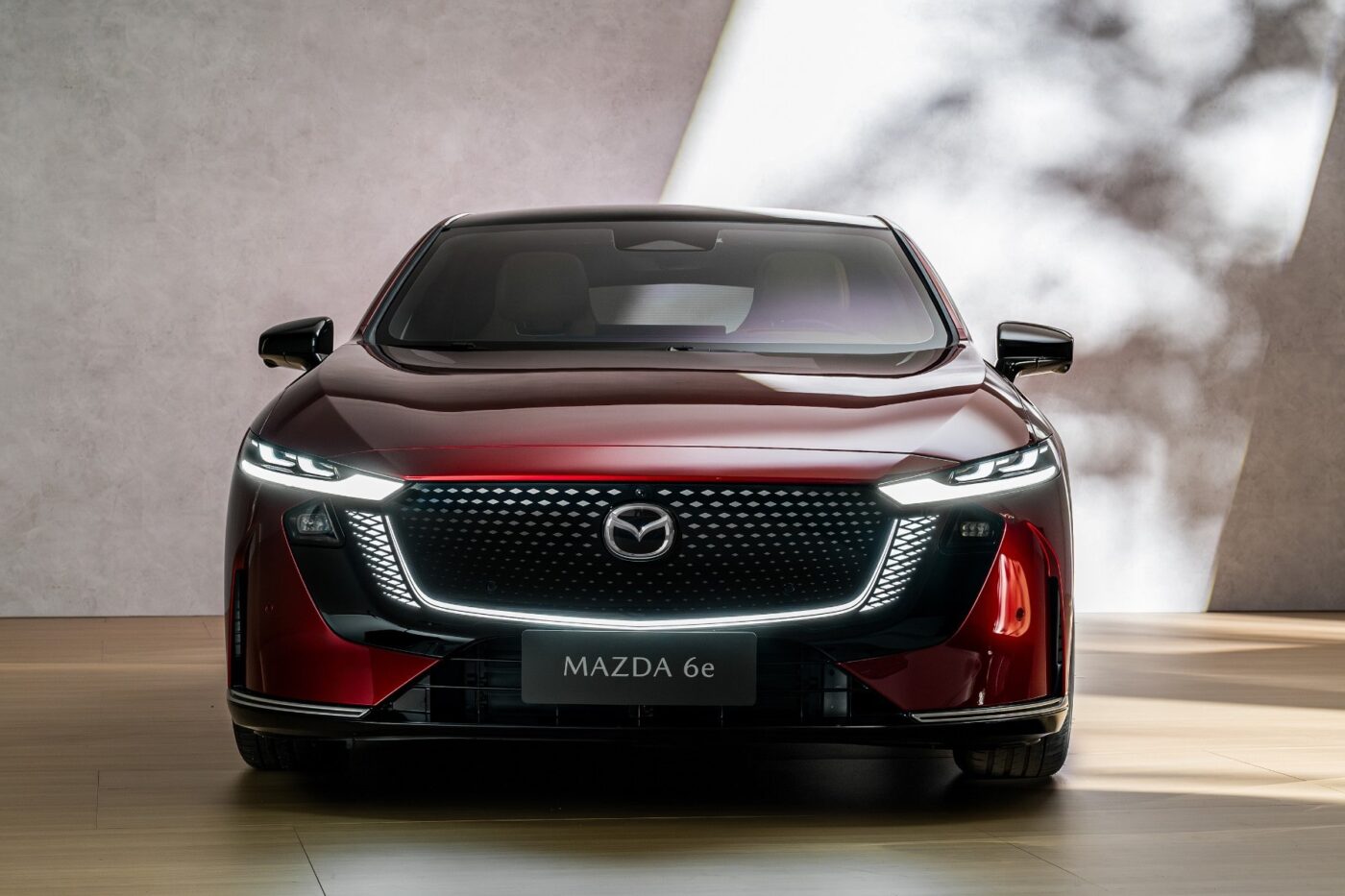Mazda to launch two EVs in Thailand
In a recent press conference announcing an investment of 5 billion baht (approx. 142 million euros) in Thailand, Mazda revealed it plans to introduce the 6e in the country this year. The company does not sell the MX-30 in Thailand, which would make the 6e its first EV in the country. The Japanese automaker chose Thailand as the new electric sedan’s second market outside China, following Europe, making it the first in Southeast Asia.
Mazda does not plan to localise the 6e in Thailand. Like in Europe, the company will import it from the Changan Mazda joint venture company, which produces it in Nanjing (Jiangsu Province), China. In a separate announcement reaffirming the Chinese sourcing, Changan Mazda emphasised its commitment to high manufacturing standards and a strong focus on quality, saying intelligent production lines and lean management models ensure the 6e adheres to global
standards.
In China, Changan-Mazda sells the 6e as the EZ-6 and offers it with 56.1 kWh and 68.8 kWh LFP battery packs and a standard rear-mounted motor producing 190 kW and 320 Nm of torque. The 56.1 kWh battery delivers a CLTC range of 480 km and the 68.8 kWh battery pack 600 km. In Europe, Mazda has announced the 6e with the same motor but 68.8 kWh LFP and 80 kWh NMC battery packs, with WLTP ranges of 479 km and 552 km, respectively. The company will disclose
the details of the Thai-spec 6e at a later stage.
Mazda did not reveal the name of the second EV it plans to launch in Thailand in 2026. The company did show a teaser, though, indicating it will be an SUV, possibly the rumoured CX-6e, inspired by the Arata concept. The Japanese automaker did not specify whether it has any localisation plans for the electric SUV.
A report from The Nation suggests Mazda will use the entire 5 billion baht (approx. 142 million euros) investment to manufacture a mild-hybrid sub-compact SUV with an annual production volume of 100,000 units. In December, Thailand reduced the excise tax on MHEVs to increase their adoption, which could slow its transition to EVs. From 2026 to 2032, the country will impose a 10% excise tax on MHEVs with a CO2 emission rating not exceeding 100 g/km and 12% on MHEVs with a CO2 emission rating of 101-120 g/km.
Mazda says it has a three-phase strategic plan for electrification in Thailand, the first part of which is just preparation. Next, the company will gradually transition towards clean mobility with a mix of partially electrified models and EVs. Finally, in the third phase, it will do a full-fledged introduction of EVs, possibly including high-volume, locally manufactured models.
mazda.co.th, mazda.co.th, changan-mazda.com.cn (in Chinese), nationthailand.com (excise tax), boi.go.th





0 Comments